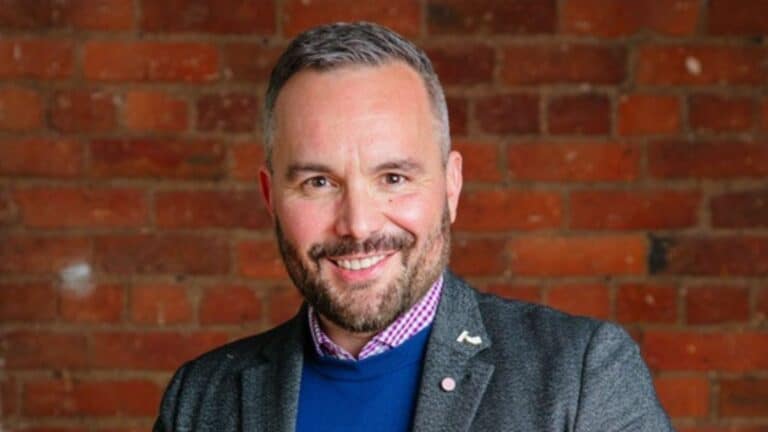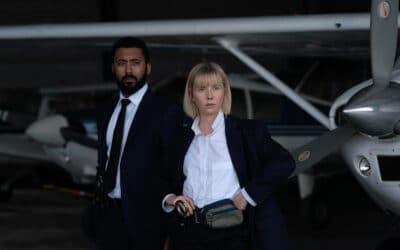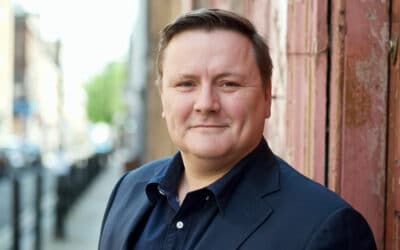Scott McVittie is executive commercial director at Factory International, the team behind Manchester’s Aviva Studios and the Manchester International Festival.
He joined in October 2024 to drive Factory International’s commercial strategy and cement Aviva Studios as a global ‘cultural powerhouse’.
McVittie brings over 15 years of commercial strategy experience from cultural giants like Toronto’s Luminato Festival and OVO Arena Wembley. He joins Factory International’s leadership team alongside artistic director and chief executive John McGrath, creative director Low Kee Hong, executive director Sheena Wrigley and chief financial officer Karen Bass.
His remit includes further establishing Aviva Studios as a leading destination, for commercial events, brand partnerships, philanthropic giving, hospitality experiences, and live music.
From entering the industry to crucial job skills, McVittie shares his career journey along with some words of advice…
How did you first get into your industry?
Like many, I started off with a completely different plan. I studied theatre and soon after I found myself working in event management and arts production, which led me to my first real career role at Luminato Festival Toronto in Canada. It’s a hallmark event with a lot of similarities to the Manchester International Festival. I started as a producer on the outdoor programming and progressed to a role where integrating brand partners and activations was key.
In Canada, the arts and culture sector has been leveraging brand partnerships as a revenue stream for decades. That experience shaped how I think about financial sustainability in the sector. I moved to the UK in 2012, wanting more international experience, and have worked on some of the biggest cultural venues and events here since.
What do you love about your job?
I love being part of an organisation that isn’t just producing innovative art but is also ensuring the future sustainability of the sector. The work we do isn’t just about our year-round programme. It’s about inventing a better tomorrow together by driving social change through arts and culture. Every project is a challenge, an opportunity to push the boundaries of art in all its forms, throwing open the doors to our sector.
Who – or what – has inspired you in your career?
I always wanted to use my degree in some way, and while I didn’t end up performing, I found bringing ambitious creative projects to life to be incredibly rewarding. I’ve worked on large-scale productions where planning and funding have transformed ideas into reality. Seeing that process unfold and knowing the impact it has on audiences keeps me inspired.
What are the biggest challenges about your job?
The economic climate is a major challenge. Securing funding, whether from individual donors or corporate partners, is increasingly challenging. The cost-of-living crisis is affecting audience behaviour — consumers aren’t spending as much and audiences are increasingly more selective. Delivering an exceptional experience is key and what we strive to do every day at Aviva Studios.
What skills have been the most crucial to you succeeding in your career so far?
The ability to see a project through to completion. It sounds simple, but finishing something – really getting it over the line – is an underrated skill. Sometimes, especially early in your career, there’s a fear of failure, but the only way to grow is to push through those challenges and learn from them.
What education or training would be most useful for someone looking to follow your career path?
There are many ways into the cultural sector — and not all of them require a traditional path.
Take Factory Academy, for example. It’s a programme designed to open doors into the creative industries for people who might not have a degree, connections, or a clear route in. It’s proof that talent and drive matter more than ticking the usual boxes.
The most important thing isn’t necessarily what qualification you have, but that you’ve seen something through — whether it’s a course, a project, or a job. That resilience, that commitment to finishing what you start, is what really stands out.
We need more ways for people to enter the industry — and more employers who value what people bring, not just what’s written on their CV.
What advice would you have for someone looking to follow your path?
Be open to varied experiences and challenges. In my case, the challenge was a big international move. And it’s one that has broadened my perspective and opened new opportunities. I’ve also moved between for-profit and non-profit roles, and that flexibility has been invaluable. Don’t pigeonhole yourself – try different things, take risks, and be willing to adapt as the industry evolves.









